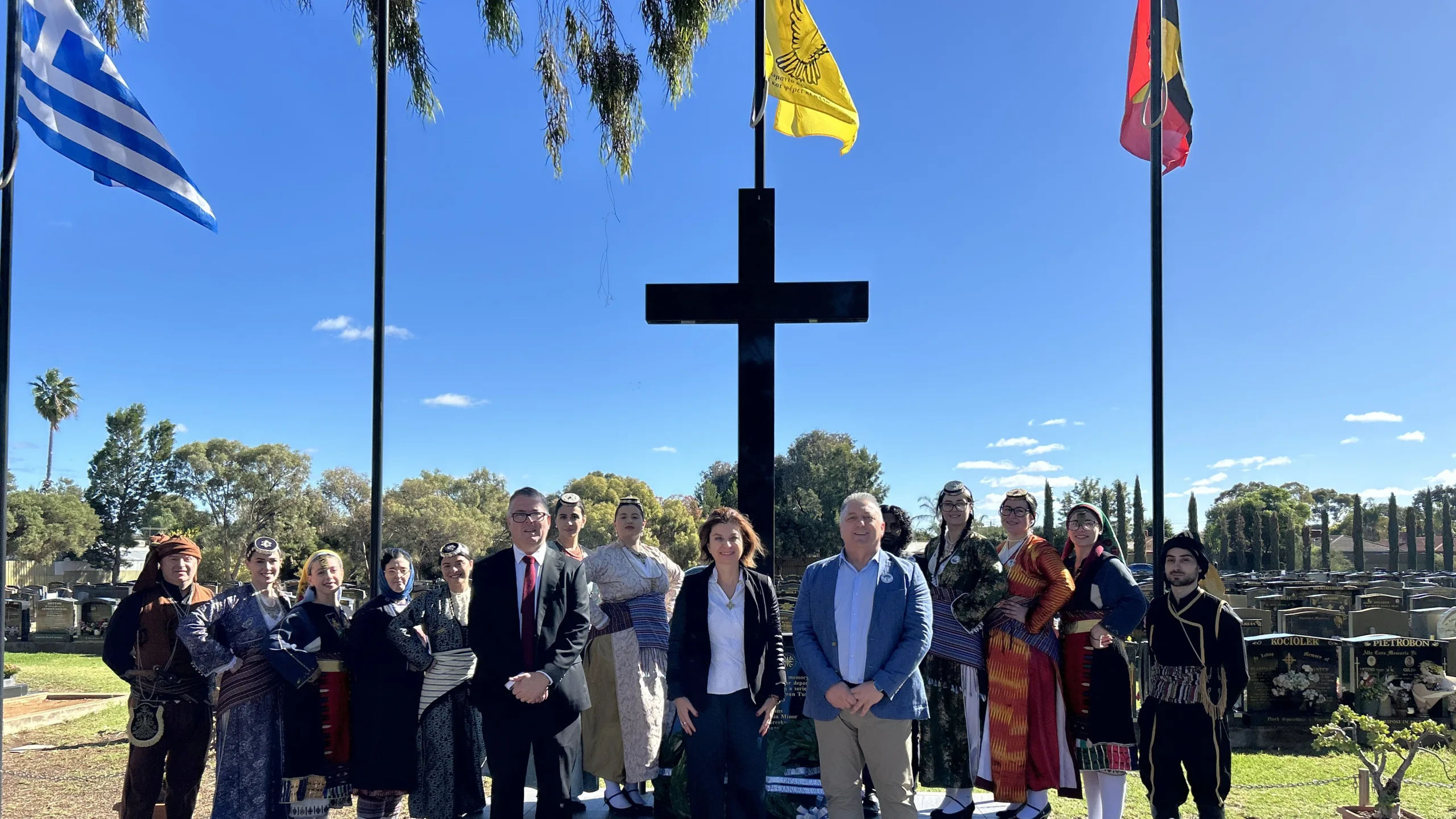The South Australian Pontian community gathered solemnly on Sunday, May 18 to commemorate the Greek Genocide, a tragic chapter in the history of the Hellenic people, which saw the extermination and expulsion of over half a million Pontian Greeks by the Ottoman regime during and after World War I.
A day of prayer and remembrance
The commemorations began at 10am with a Divine Liturgy and memorial service at the Greek Orthodox Church of Agios Dimitrios in Salisbury Plain. Officiated by Father Michael, the service honoured the memory of the victims.
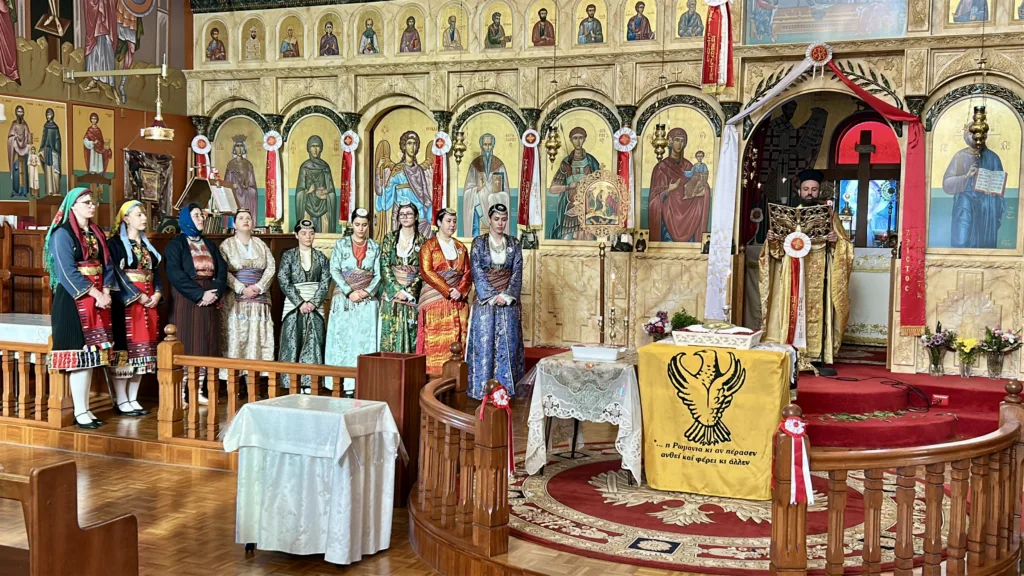
In his homily, Father Michael reflected on the spiritual strength and faith of the victims.
“They were not soldiers. They were mothers, fathers, children, baptised in Christ, faithful to their heritage. In the face of horror, they did not abandon Christ. They held the cross, awaiting the Holy Resurrection. For this, we remember them not only as victims—but as martyrs, as true confessors,” he said.
Drawing parallels to the Gospel story of the Samaritan woman, commemorated on the same day, he called upon the faithful to become vessels of living memory: “Christ is still at the well. He still offers living water. To truly honour our ancestors is not just to lay wreaths, but to imitate their holiness in our lives. You are not just children of refugees—you are heirs of saints.”
Wreath laying ceremony at Salisbury Memorial Park
Following the church service, a wreath laying ceremony was held at Salisbury Memorial Park Cemetery at 11:30am. Community leaders, young dancers in traditional attire, and local dignitaries joined to pay tribute at the Pontian Genocide Monument.
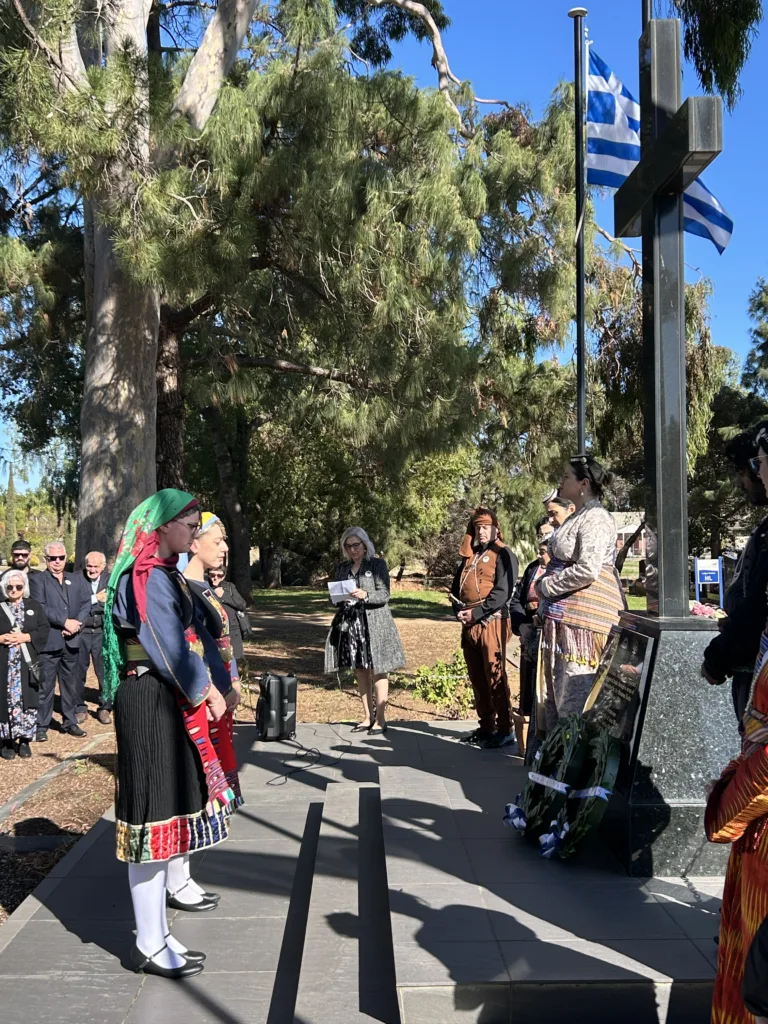
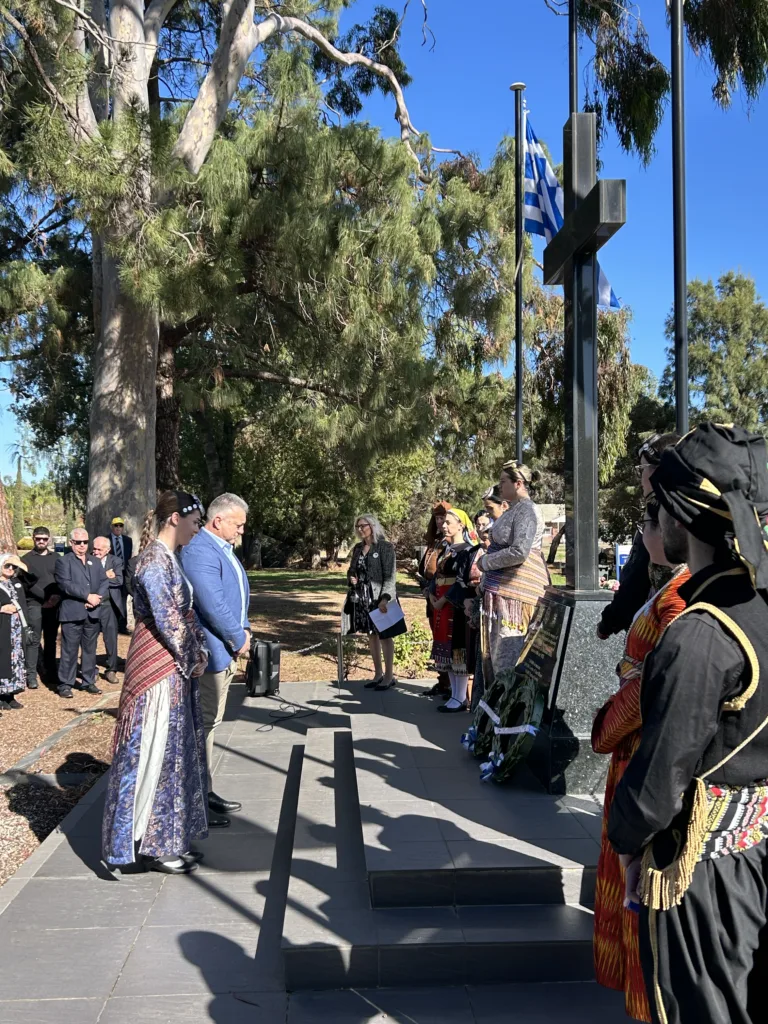
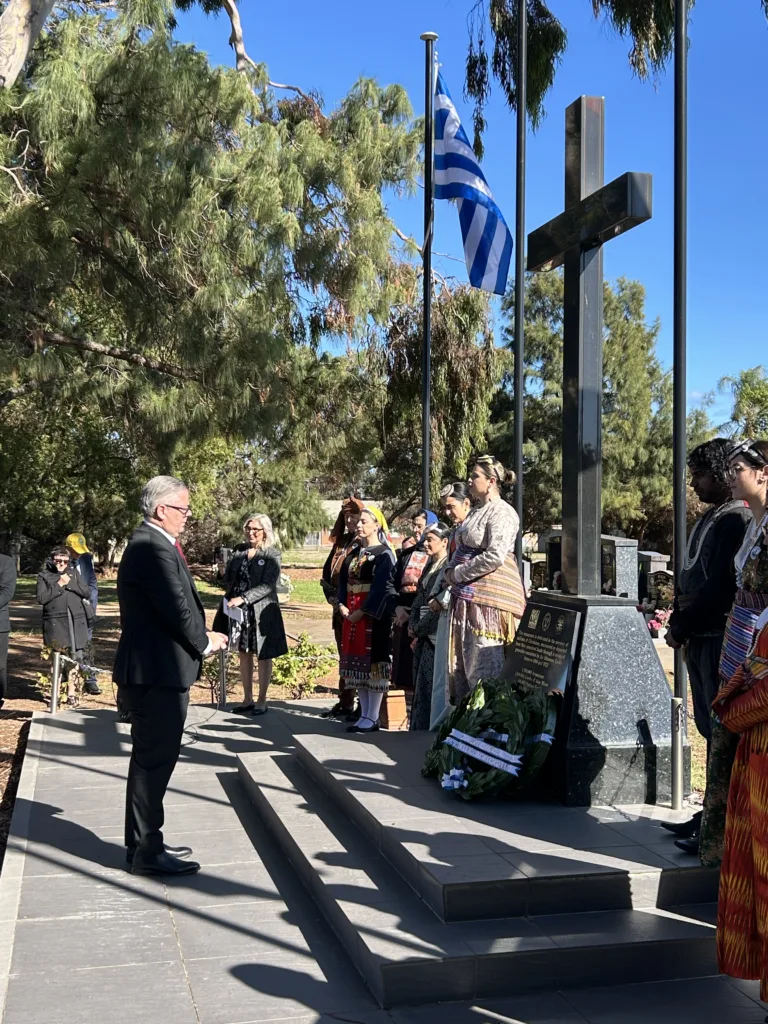
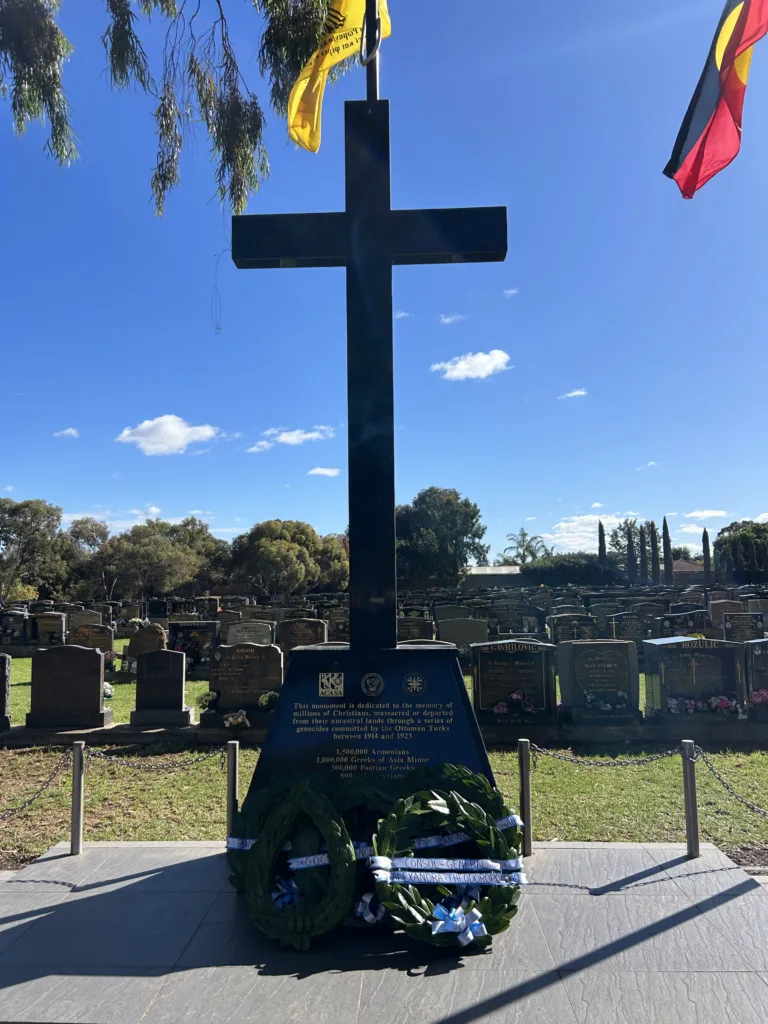
The monument bears stark testimony to the scale of the genocides committed by the Ottoman Empire between 1914 and 1923, including the deaths of 1,500,000 Armenians, 1,000,000 Greeks of Asia Minor, 500,000 Pontian Greeks, and 800,000 Assyrians.
A prayer was offered for the eternal memory of all victims who perished in what historians increasingly acknowledge as one of the 20th century’s earliest and most brutal genocides.
Addressing the crowd, the Consul General of Greece in Adelaide, Dr. Alexandra Theodoropoulou, reflected on the rich 3,000-year history of the Pontian Greeks and the magnitude of their loss.
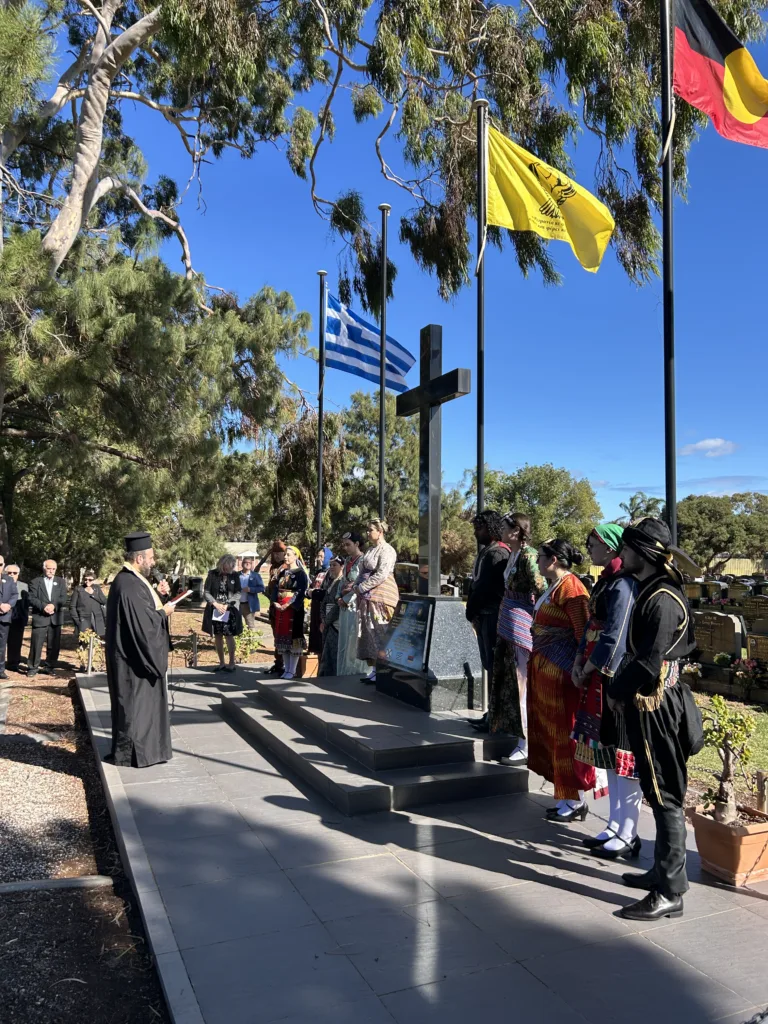
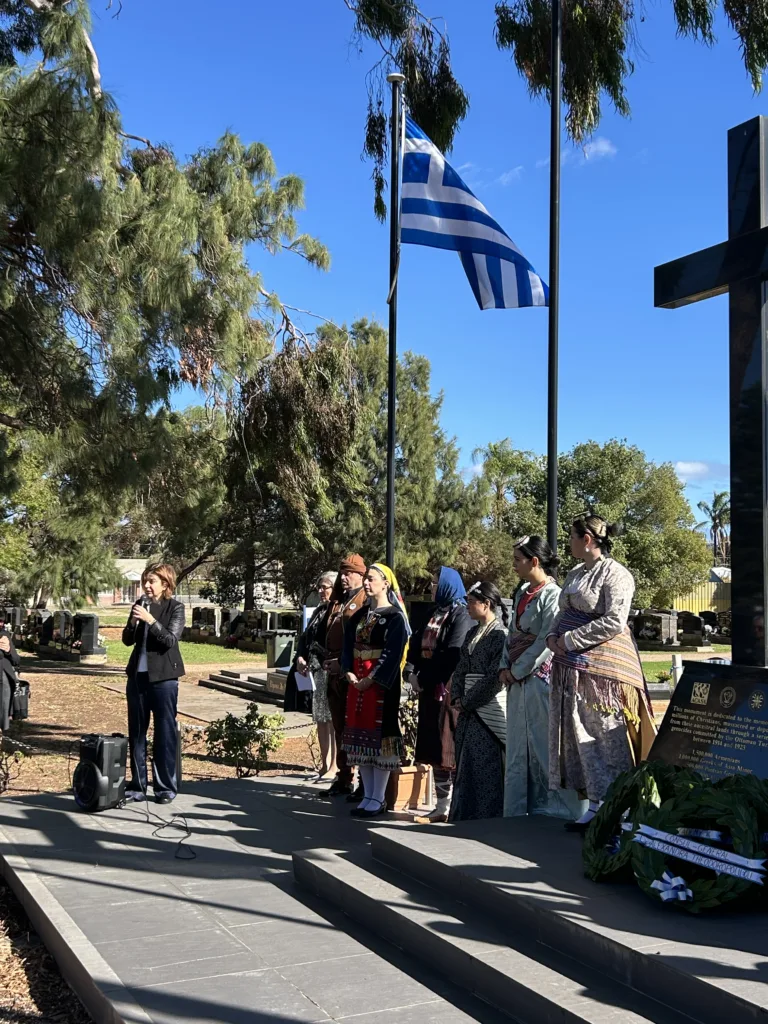
“The Pontians were among the first Greeks to settle the Black Sea, creating cities, spreading Hellenic civilization, and later embracing Christianity. Their eradication in the early 20th century was not just the loss of a people—it was the destruction of a culture and a civilisation,” she said.
Dr. Theodoropoulou expressed deep gratitude for South Australia’s official recognition of the Genocide, acknowledging it as a vital act of justice: “Such recognition ensures that these atrocities will not be forgotten. It is our duty as Greeks, and as citizens of the world, to say loudly: ‘Never again.’ Never again the eradication of any nation.”
The event concluded with a passionate appeal to the younger generation: to preserve the language, the customs, the stories — and above all, the faith — of their ancestors.
*All photos copyright The Greek Herald / Peter Tantalos.
